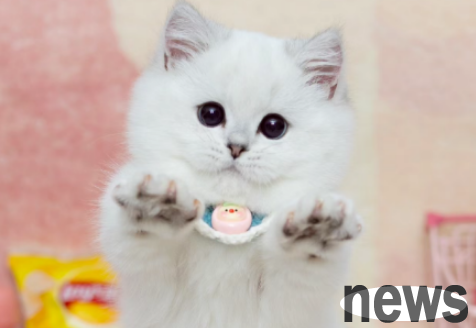It is a joy to have a new little life, but there are many responsibilities that come with it. Especially for friends who raise cats for the first time, the growth stage of kittens is full of challenges and questions. This article will provide you with an in-depth understanding of the growth characteristics of kittens every month, things to pay attention to, and some practical feeding and care suggestions when they are old, making your cat raising journey smoother.

0-January: The fragile period of newborn kittens
Features: Newborn kittens have not yet fully opened their eyes and ears and spend most of their time sleeping.
Notes: Kittens at this stage need to keep warm, the appropriate temperature is 30-32 degrees Celsius. At the same time, make sure they get enough breast milk under the care of their mothers, which is their main source of nutrition.
Feeding advice: Unless the veterinarian recommends manual feeding, the kitten should be kept with the mother and enjoy breastfeeding.
February-March: The stage of exploring the world
Features: The kitten begins to become curious about the surrounding environment and tries to stand and walk.
Notes: Pay attention to items such as wires, toxic plants, etc. at home that may pose a threat to kittens to ensure their safety. At this time, the kitten's teeth begin to grow, which may cause nibbling on hard objects.
Feeding advice: Continue breastfeeding or choose the right kitten food to ensure adequate water.
March-April: A lively and active growth period
Features: Kittens gradually become lively and begin to play and explore.
Notes: Provide safe toys and climbers to satisfy their curiosity. At this time, the kitten's activity increases and requires more energy, so the food should be increased appropriately.
Feeding suggestions: Appropriately increase the amount of solid food, and pay attention to supplementing nutrients such as calcium and vitamins.
April-May: The bud of sexual maturity
Features: Kittens begin to become interested in the opposite sex and develop estrus.
Notes: If the estrus occurs too early, you may need to seek veterinary advice to control it. At the same time, be careful to avoid overproliferation of kittens, which may have a negative impact on their health.
Feeding advice: Continue to provide adequate nutrition and pay attention to supplementing protein and fat.
May-June: Independent kittens mature period
Features: Kittens gradually show the behavioral characteristics of adult cats and begin to live independently.
Precautions: You can start training kittens with good habits, such as using cat litter box, etc. At the same time, pay attention to their behavior changes to prevent excessive scratching of furniture.
Feeding suggestions: Gradually transition from kitten food to adult cat food while maintaining balanced nutrition.
June-July: Preparation to entering adulthood
Features: The kitten's body and personality are gradually mature, preparing to become an adult cat.
Notes: Kittens at this stage need more attention and care to help them transition smoothly into adulthood. At the same time, you should pay attention to keeping your health healthy and conduct regular health checks.
Feeding advice: Continue to provide high-quality food, pay attention to protein and fat intake to meet their growing body needs.

In short, there are many things to pay attention to when kittens grow from 0 to July. By understanding the characteristics and precautions of each stage and providing appropriate feeding and care advice, you will be able to better meet the needs of your kitten and promote their healthy growth. Also remember to take them to the veterinary office for health checks regularly to make sure they remain healthy. Hope this information will help you and the kitten have a great time together!
